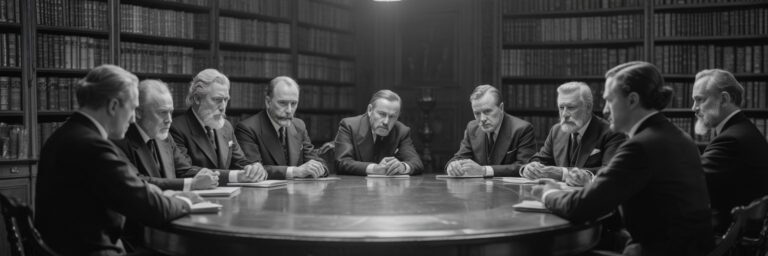INTRODUCTION
Welcome to The History Compass, where we journey through time, unearthing historical secrets, marveling at the turning points of civilization, and exploring the nuance and depth of human experience. In this edition, we direct our compass to the fiery cores of revolutions and uncover the words that spurred nations into tumultuous change. From the lyrical commandments of ‘Liberty, Equality, Fraternity!’ to the vehement cry of ‘No taxation without representation,’ famous quotes and speeches lie at the heart of every revolution, embodying the collective dreams, frustrations, and aspirations of the masses. As we delve into the riveting world of revolutionary rhetoric, we unravel the true power of words and their enduring impact on societies.
HISTORICAL BACKGROUND
From the citizen-led French Revolution to the ideological Bolshevik Revolution, history is replete with examples where eloquent words have challenged authority, championed change, and ignited the collective desire for liberty. Often originating as an outcry against oppression or a rallying call for justice, revolutionary quotes and speeches create a potent dialectic of resistance.
In 1775, Patrick Henry’s “Give me liberty, or give me death” underscored the American Revolutionaries’ fervor and complete disregard for the crushing might of the British Empire. Likewise, Georges Danton’s “Audacity, more audacity, always audacity” in 1792 encapsulated the raw nerve of the French Revolution’s early phase.
THEORIES AND INTERPRETATIONS
The study of these revolutionary quotes and speeches offers a fascinating insight into the era’s spirit, societal mores, and political climate. Those slogans, paintings, speeches, and even songs are seen as reflexive elements or “texts” by linguistic relativists, relating to the material conditions of the revolution.
Political theorist Hannah Arendt viewed the ‘speech act’ as central to political action. In her view, politically significant actions are, by necessity, accompanied and sustained by liberating speech. Hence the potency of these quotes and speeches in not only reflecting but amplifying the direction and intensity of the revolutions.
MYSTERIES AND CONTROVERSIES
Often, the mystery and controversy surrounding revolutionary quotes and speeches revolve around the attribution and true origin of these iconic utterances. Case in point: “Let them eat cake,” attributed to Marie Antoinette during the French Revolution. While the phrase perfectly distills the monarchy’s disregard for the starving masses’ plight, recent historians argue that Antoinette never uttered these words.
The digital era has exacerbated these controversies, with misquote and misattribution rampant across the internet. As a result, unwary internet users quote Robespierre’s “The king must die so that the country can live” without realizing its real author was Jean-Baptiste Carrier.
SYMBOLISM AND CULTURAL SIGNIFICANCE
Revolutionary quotes and speeches often carry significant symbolic weight, reflecting prevalent cultural, social, or philosophical norms. Ernesto ‘Che’ Guevara’s slogan, “Hasta la victoria siempre,” or “Until victory, always,” epitomized his relentless fight against capitalist imperialism during the Cuban Revolution. Che’s phrase was more than a military battle cry; it embodied the Latin American struggle against economic and political colonization, immortalizing Guevara as a symbol of resistance and resilience.
MODERN INVESTIGATIONS
Modern academics and historians often turn to revolutionary quotes and speeches to understand the zeitgeist of the time better. Through semantic and linguistic analysis, researchers expose the power dynamics, gender norms, and inherent biases or presuppositions underpinning the revolution.
Historians scrutinize these historical utterances, comparing the ideal goals articulated in these words with the actual outcomes of the revolutions. Moreover, psychologists investigate how these speeches resonated with and mobilized the collective consciousness, thus revealing the dynamics of crowd behavior during tumultuous periods.
LEGACY AND CONCLUSION
As we journey away from the tumult of revolutions and towards the calm of reflection, we appreciate the enduring legacy these quotes and speeches possess. These phrases transcend their specific historical contexts to unite people across ages under the universal themes of freedom, equality, and the right to just governance. The call, “I have a dream,” rings loudly even today, inspiring countless movements against racial discrimination worldwide.
Finally, through these quotes and speeches, we not only comprehend the urgency and fervor that underscored revolutions but also recognize humanity’s unfaltering spirit in the face of oppression. As etched in history and memory, revolutionary quotes and speeches continue to echo, testifying to our collective journey and stirring our collective conscience.
Our exploration urges us to appreciate the depth and diversity of thought in these revolutionary quotes and speeches. As we pen down these reflections, we realize that revolutions speak in shades of courage, audacity, and hope, animating the pages of history with their vibrant rhetoric. Even in our silence, we carry their echo- a testament to their enduring strength and universal relevance.






